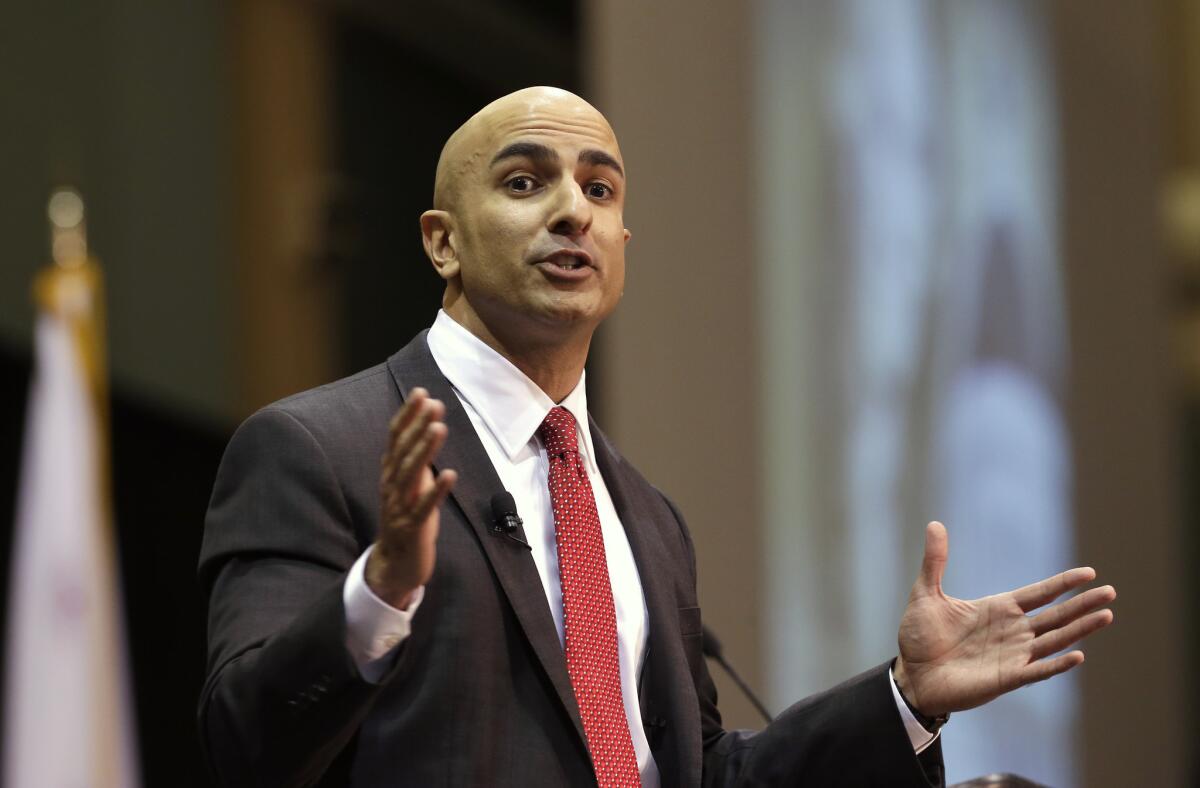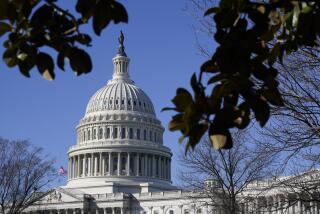Satellite TV offers viewers targeted ads -- for candidates

- Share via
This item has been corrected, as indicated below.
The huge increase in campaign spending in recent years has been good to media outlets, this one included, that run political advertisements. Now, two of those companies -- DirecTV and Dish Network -- are rolling out a new service that could make campaign advertising considerably more efficient for statewide and congressional candidates (and the groups that support them).
Conceivably, it could also make the messages more relevant and, gasp, interesting to viewers. But let’s not go overboard.
The companies said Monday that they have jointly developed a way to let candidates and campaign committees target different messages to different homes. Instead of telling the same thing to every voter, candidates will be able to show their messages only to those who might be persuadable, and tailor ads to viewers based on their political leanings. Cable operators can’t do that beyond the limits of their local market, and local TV stations can’t target ads at individual homes period.
PHOTOS: How the Democrats can win back the House and keep the Senate -- in 6 steps
My first reaction was to be vaguely creeped out by the thought of my viewing habits being analyzed for hints of my politics. If I watch “NCIS,” does that brand me as a hands-off-my-Medicare Republican? If I tune in to Marvel’s “Agents of S.H.I.E.L.D.,” does that suggest I still believe Obamacare can work?
(Just joking! Although my kids do watch “Agents of S.H.I.E.L.D.,” and I haven’t given up on Obamacare.)
But while there are political consultants probably doing that very sort of profiling, executives at DirecTV and Dish say they’re not looking at viewing data. At all. Instead, said Dave Shull, Dish’s chief commercial officer, the companies rely on the lists of Republicans, Democrats and independents that have been compiled by political campaigns and other third parties. The campaigns simply have better ways of identifying someone’s political leanings than DirecTV or Dish could develop from analyzing what people watch, Shull said.
The service works this way, according to Shull and Paul Guyardo, DirecTV’s chief revenue officer: The satellite beams all of the ads to subscribers’ homes, but each subscriber’s digital video recorder stores only the ones that match that household’s political profile. Then, when a participating network airs a participating candidate’s spot, the DVR plugs in the stored version of the targeted ad. The DVR will also keep track of which ads have already been shown, to limit the amount of repetition (assuming the candidate wants to go the humane route).
The advantages for candidates include paying only for the ads that are actually played in the home -- the DVRs know when a household misses an ad because the TV was turned off -- and varying their messages according to the audience. Not that politicians would alter their position on issues to match what voters want to hear (insert your joke here), but a GOP gubernatorial candidate such as Neel Kashkari (pictured above) might not want to spend a lot of money pitching fiscal restraint to liberal Democrats, and a Democratic Senate incumbent in Louisiana might not want to remind Republican voters that she backed the Affordable Care Act.
DirecTV and Dish are offering the service only to cable networks; local broadcasters aren’t keen on pay-TV operators messing with the commercials they air. And so far, only a portion of those cable networks have agreed to participate. The companies estimate that the combined reach of the service will be more than 20 million viewers, which represents the homes with DVRs.
Admittedly, the chances that political campaigns will use the newfound gains in efficiency to run fewer ads are slim. For example, rather than not advertising to voters from the other party, I suspect candidates will target them with negative ads about their side’s nominee. But it’s nice to think that the campaign fog might be a little less dense in the coming year, at least on some channels.
[For the Record, Jan. 28, 8:10 a.m.: The original version of this post gave Shull and Guyardo the correct titles but at the wrong companies, putting Shull at DirecTV and Guyardo at Dish. The opposite is correct.]
ALSO:
Rail alone can’t reinvent L.A.
Protect good teachers, fire bad onesFollow Jon Healey on Twitter @jcahealey and Google+
More to Read
A cure for the common opinion
Get thought-provoking perspectives with our weekly newsletter.
You may occasionally receive promotional content from the Los Angeles Times.










